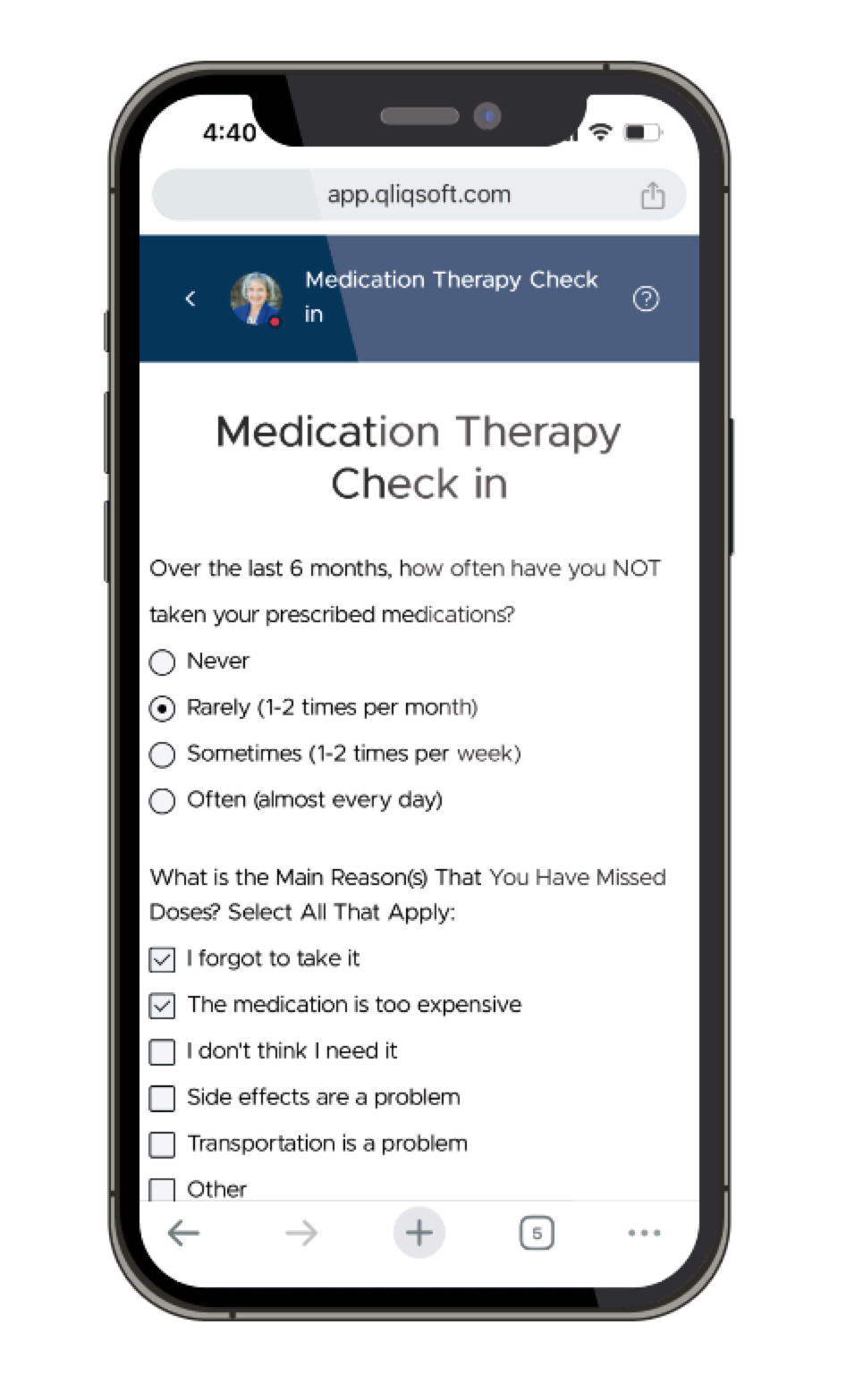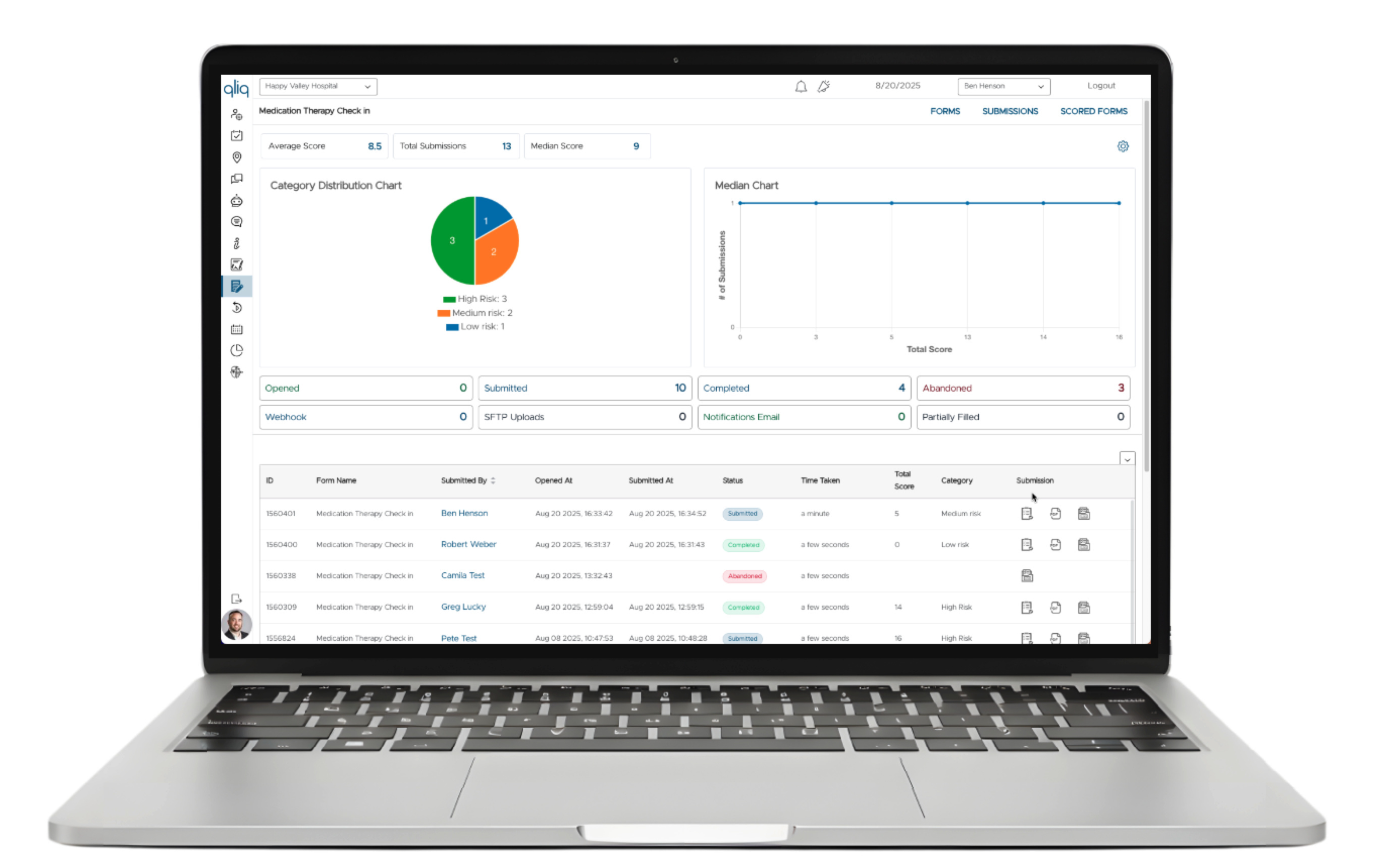
Organizations with value-based care contracts need to do these two things well to maximize population health:
Consider the triple-weighted medication adherence measures used by Medicare in the Star Ratings program, focusing on these three key chronic conditions: diabetes, hypertension (specifically adherence to renin-angiotensin system antagonists or RASA), and cholesterol management (statins). These three adherence measures are considered critically important and thus are weighted three times more heavily than most other measures in the overall Star Ratings calculation.
Taking medication correctly may seem like a simple matter, but non-adherence is a complicated and common problem. Health literacy is a challenge. Many people are unaware of the full impact of non-adherence, particularly when they don’t notice symptoms after skipping doses. When people with chronic conditions such as diabetes or hypertension do not take medication as directed, the repercussions can be severe.
People may not be comfortable sharing their medication challenges and may fear being judged or scolded.
Medication adherence is critically important, yet challenging to evaluate and assess the impact, as this behavior occurs outside the healthcare setting. Today, medication adherence is captured in the office visit. The adherence of approximately 65% of patients who don’t schedule a visit is mainly unknown.
The health plans associated with these members may have data on refills. Often, that data is not available to physicians, and when it is, it comes in multiple formats, making it hard to combine to manage the practice’s overall population.
There is another option.
QliqSOFT has added a new scored forms capability to its Quincy Digital Patient Engagement Platform to help busy health systems succeed with this measure. Here is one example of how this can work.

Organizations send custom surveys to their targeted population of patients to screen for medication adherence by having their EHR or analytic system trigger an automated campaign to all patients with target diagnoses. Budget limited organizations can manually load a csv file of these same patients.
These patients receive an invitation to join a HIPAA-secure conversation which explains the importance of following prescribed medications and inquires about medication use behavior and if the individual would like help addressing their challenge. Patients have the option to escalate to a digital conversation with a live agent to get help such as:
The patient’s completed survey is immediately available to the care team. Each of the patient’s discrete answers is assigned a score, like the PHQ-9 instruments used in behavioral health. Completed surveys populate a dynamic report automatically updated in real time as each survey is completed. This report shows:

This enables the care team to quickly and easily scan the risk levels of all the surveys submitted by patients to prioritize those with the highest needs and reach out to help them. This reporting saves significant staff time, reducing time spent manually reviewing forms and replacing it with higher-value interventions.
Medication adherence promotes disease management, prevents complications, and enhances the quality of life. Proactive outreach to patients reinforces the importance of taking medications as prescribed, provides an opportunity to reinforce the importance of adherence, and offers empathetic and supportive assistance to patients who need help taking their medications as prescribed. It provides a respectful, private opportunity to share challenges such as remembering to take drugs or difficulty paying for prescriptions, which can be easier to admit to an empathetic conversational chatbot than to the nurse sitting in the exam room with you.
